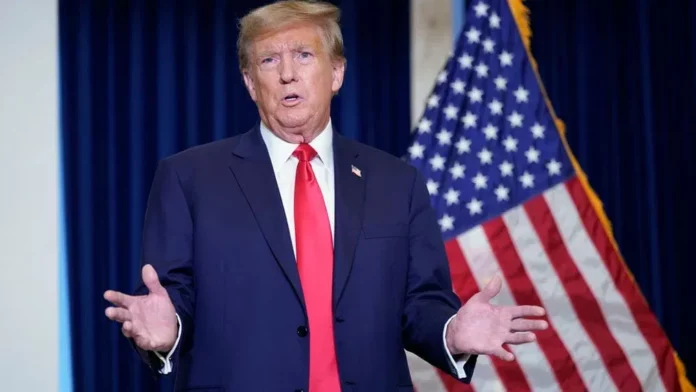Former President Donald Trump will not be allowed to personally deliver a closing statement in the New York attorney general’s civil fraud case, as he failed to meet the court-mandated deadline to accept reasonable conditions set by Justice Arthur F. Engoron.
Trump Can’t Give Own Closing Argument In NY Fraud Trial : Deadline Drama Unfolds
In a surprising turn of events, Trump did not respond by the third extended deadline imposed by the judge, leading to a decisive email from Justice Engoron just after noon. The judge expressed his assumption that Trump would not agree to the reasonable limits set for giving a closing statement, stating that Trump would not be speaking in court alongside his attorneys during the concluding statements scheduled for Thursday.
Battle Over Bounds
The legal saga began when Trump initially sought permission to speak for himself on January 4. The judge laid out specific conditions, emphasizing that Trump must adhere to the same limits as his attorneys. These constraints include refraining from introducing new evidence, testifying, delivering a campaign speech, or making irrelevant comments.
Trump Can’t Give Own Closing Argument In NY Fraud Trial : Stark Warning
Justice Engoron warned Trump that any violation of these rules would result in immediate interruptions and potential removal from the courtroom. The judge also issued a stern warning about violating a gag order, threatening a $50,000 fine and removal from the courtroom.
Counsel’s Protest
Trump’s counsel, Chris Kise, argued on Tuesday that the imposed limits were unfair. Kise received a firm response from the judge, who set a deadline for a response and ultimately rejected the bid to remove any constraints on Trump, leaving him with a “take it or leave it” ultimatum.
Tragic Turn of Events
A tragic development occurred when Kise informed the judge that Trump’s mother-in-law had passed away, seeking a postponement of closing arguments. Despite condolences from the judge, Trump’s counsel confirmed that the former president would still be speaking.
Trump Can’t Give Own Closing Argument In NY Fraud Trial : Unfair Treatment?
Kise expressed his frustration, deeming it “very unfair” that Trump was not allowed to address certain matters. The judge remained resolute, informing Trump’s counsel that Trump would not be delivering a closing statement in court.
Trial Background
Justice Engoron had previously found Trump and others liable for persistent fraud in a pre-trial decision. The trial, which began in October, focused on claims of insurance fraud, falsifying business records, issuing false financial statements, and conspiracy. The judge’s impending verdict will also address the attorney general’s request for $370 million in disgorgement and a ban on the Trumps from doing business in New York.






